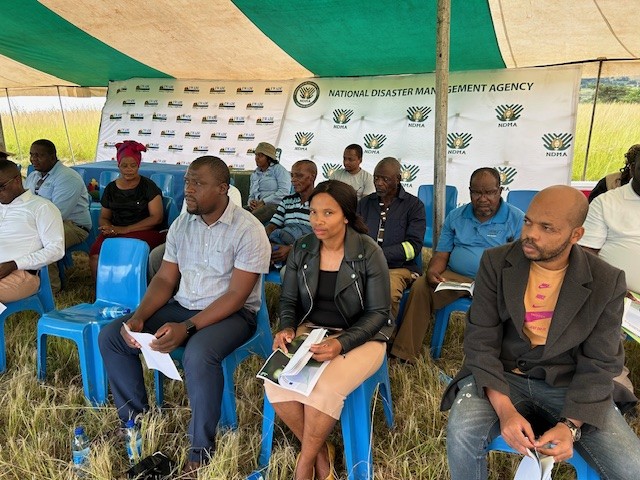By Thokozani Mazibuko
In a momentous gathering at Paradise Farm, officials from the Eswatini Water and Agricultural Development Enterprise (EWADE), the National Disaster Management Agency (NDMA), and the National Maize Corporation (NMC) convened to launch a transformative 50-hectare bean production project.
The initiative, aimed at enhancing food sovereignty in Eswatini, promises substantial economic benefits, with a projected yield of 60 metric tons valued at over E1.6 million.
Dr. Silwayiphi Sithole, CEO of EWADE, addressed the crowd, highlighting the significance of the project. “Standing here today, we can already see results.
RELATED: EWADE drives resettled farmers to commercial maize success
The bean crop has reached early physiological maturity,” he stated. “This isn’t just a number it’s a reflection of the hard work, the dedication, and the power of collaboration.”
The initiative is not merely about agricultural production; it represents a strategic commitment to empowering local farmers and ensuring food security.
By promoting crop diversification through bean cultivation, the project aims to improve nutrition and provide a variety of food options for the community.

Dr. Sithole emphasized the essence of collaboration, saying, “The success of this project is not about one institution.
It is the result of shared vision, transparent collaboration, and aligned purpose between EWADE, NDMA, and NMC.”
He urged everyone to continue in this spirit, underscoring that the goal extends beyond cultivating beans—it is about fostering hope, resilience, and opportunity for the people of Eswatini.
RELAETD: ECONOMIC DEVELOPMENT TOP PRIORITY IN EWADE’S MNWAP’S PROJECT
The partnership has sparked optimism among local farmers and stakeholders, who see this project as a vital step toward a sustainable agricultural future.
As the bean crop progresses, expectations of further economic growth and enhanced community engagement are high.
With the landscape at Paradise Farm transformed into a hub of agricultural innovation, the collaborative efforts of EWADE, NDMA, and NMC may very well set the groundwork for future initiatives aimed at reinforcing food sovereignty and driving the nation’s agricultural transformation.
It is worth mentioning that as the community rallies around this initiative, the shared vision of resilience and prosperity serves as a beacon of hope for the people of Eswatini, signaling a new era in local agriculture and food security.


